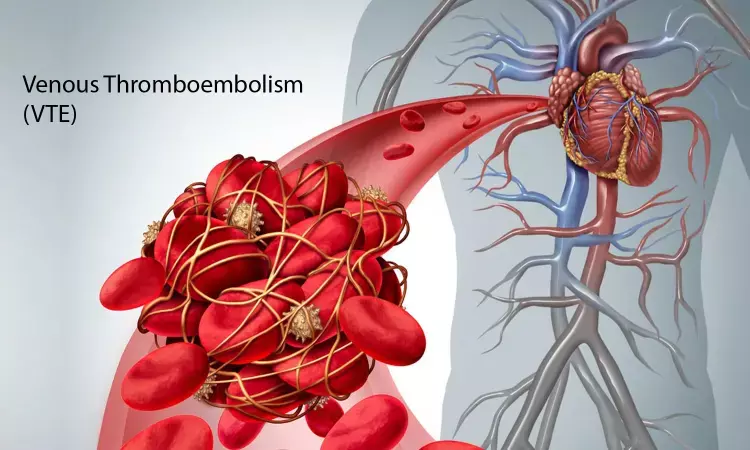- Home
- Medical news & Guidelines
- Anesthesiology
- Cardiology and CTVS
- Critical Care
- Dentistry
- Dermatology
- Diabetes and Endocrinology
- ENT
- Gastroenterology
- Medicine
- Nephrology
- Neurology
- Obstretics-Gynaecology
- Oncology
- Ophthalmology
- Orthopaedics
- Pediatrics-Neonatology
- Psychiatry
- Pulmonology
- Radiology
- Surgery
- Urology
- Laboratory Medicine
- Diet
- Nursing
- Paramedical
- Physiotherapy
- Health news
- Fact Check
- Bone Health Fact Check
- Brain Health Fact Check
- Cancer Related Fact Check
- Child Care Fact Check
- Dental and oral health fact check
- Diabetes and metabolic health fact check
- Diet and Nutrition Fact Check
- Eye and ENT Care Fact Check
- Fitness fact check
- Gut health fact check
- Heart health fact check
- Kidney health fact check
- Medical education fact check
- Men's health fact check
- Respiratory fact check
- Skin and hair care fact check
- Vaccine and Immunization fact check
- Women's health fact check
- AYUSH
- State News
- Andaman and Nicobar Islands
- Andhra Pradesh
- Arunachal Pradesh
- Assam
- Bihar
- Chandigarh
- Chattisgarh
- Dadra and Nagar Haveli
- Daman and Diu
- Delhi
- Goa
- Gujarat
- Haryana
- Himachal Pradesh
- Jammu & Kashmir
- Jharkhand
- Karnataka
- Kerala
- Ladakh
- Lakshadweep
- Madhya Pradesh
- Maharashtra
- Manipur
- Meghalaya
- Mizoram
- Nagaland
- Odisha
- Puducherry
- Punjab
- Rajasthan
- Sikkim
- Tamil Nadu
- Telangana
- Tripura
- Uttar Pradesh
- Uttrakhand
- West Bengal
- Medical Education
- Industry
Higher serum uric acid linked to VTE recurrence

Treviso, Italy: Increased levels of serum uric acid (SUA) increases risk of recurrent venous thromboembolism (VTE) after treatment for an initial VTE, finds a recent study published in the Journal of Thrombosis and Haemostasis.
Uric acid is the final product of purine metabolism, Several previous studies have reported a link between SUA and the risk of cardiovascular disease. However not much is known about the impact of SUA levels on the VTE recurrence risk. So Lara De Lucchi, Ca' Foncello University Hospital, Treviso, Italy, and colleagues investigated the association between SUA and the risk of VTE recurrence.
For the purpose, the researchers performed a monocenter, prospective study on 280 patients with a previous episode of VTE that completed the oral anticoagulant period. SUA levels at enrollment were correlated with the risk of VTE recurrence. The patients were followed up for a duration of 71.1 ± 29.2 months.
Key findings of the study include:
- Patients were stratified according to SUA tertiles distribution at baseline (tertiles cut‐off: I ≤ 4.37 mg/dl, II 4.38 – 5.54 mg/dl, III ≥ 5.55 mg/dl).
- Fifty episodes of VTE recurrence occurred during the follow‐up and Kaplan‐Meyer survival analysis showed that subjects in the lower tertile of SUA distribution had significant lower risk of future VTE recurrence.
- No difference were seen among patients belonging to the second and the third tertile of SUA distribution.
- A multivariate Cox regression analysis showed that higher tertiles of SUA distribution had about 3‐fold increase in the risk of VTE recurrence as compared to subjects with SUA ≤ 4.37, independently from potential confounders (HR 3.04).
- The adjusted hazard of VTE recurrence increases by 30% for each additional unit of SUA (mg/dl) (HR 1.30).
"Elevated SUA levels are associated with increased risk of future VTE recurrence independently from traditional risk factors," concluded the authors.
The study, "Serum uric acid levels and the risk of recurrent venous thromboembolism," is published in the Journal of Thrombosis and Haemostasis.
DOI: https://onlinelibrary.wiley.com/doi/10.1111/jth.15139
Dr Kamal Kant Kohli-MBBS, DTCD- a chest specialist with more than 30 years of practice and a flair for writing clinical articles, Dr Kamal Kant Kohli joined Medical Dialogues as a Chief Editor of Medical News. Besides writing articles, as an editor, he proofreads and verifies all the medical content published on Medical Dialogues including those coming from journals, studies,medical conferences,guidelines etc. Email: drkohli@medicaldialogues.in. Contact no. 011-43720751


